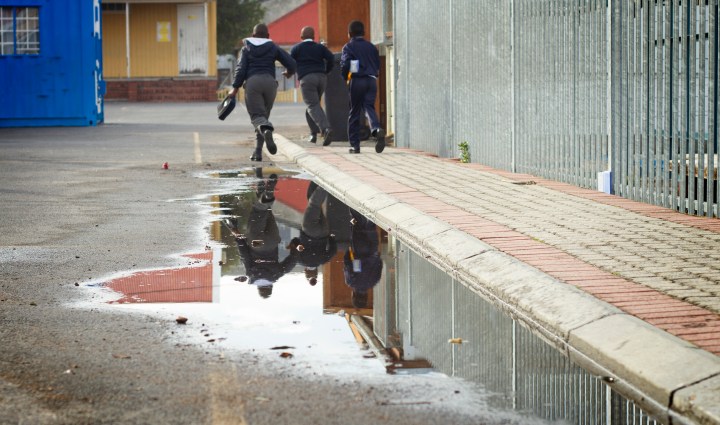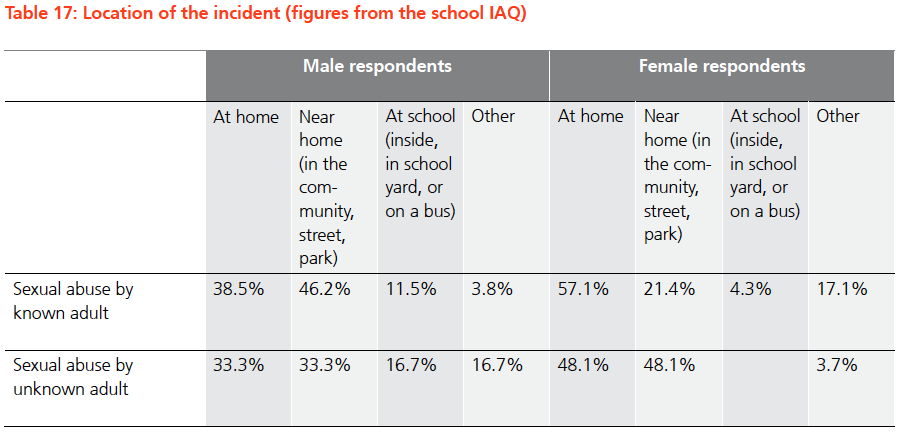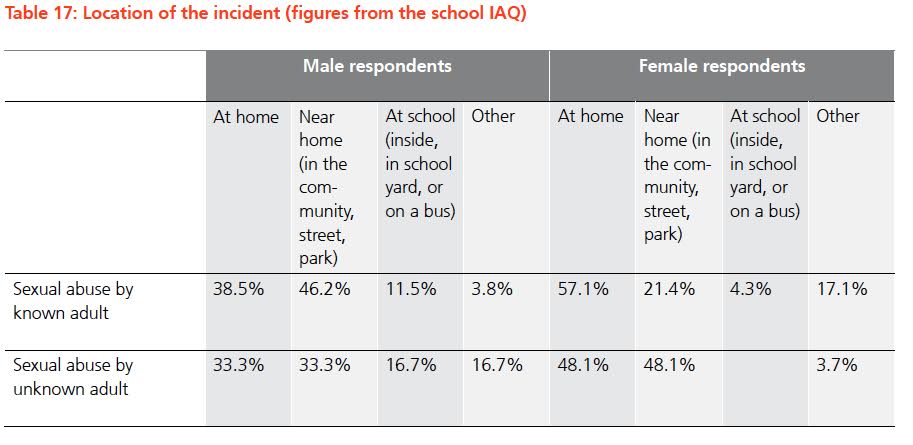OP-ED
Correct research vital for improving lives of SA schoolchildren

It is not the case that “only” girls experience high levels of sexual violence, nor that they mainly experience it at school or by means of teachers and classmates.
Response to What it’s really like to be at school in South Africa, DM, 25 June 2018
There is much to appreciate about Chiara Baumann’s 25 June 2018 article. First, Baumann correctly points to the appalling conditions in which the majority of learners in South Africa live, commute and are expected to learn. She also correctly points to the impact of violence on the ability of children to learn, and their understandable lack of willingness to remain in environments in which they are likely to be subjected to more violence. She further highlights the seemingly intractable problem of how to improve time-on-task in schools by not only learners, but teachers too.
Superficial analysis doesn’t help us solve problems
Unfortunately, Baumman neglects to speak to the issue of the perceived ROI of completing matric in South Africa when few jobs are available, and the perceived likelihood of finding more lucrative work in questionably legal fields that require street smarts rather than book learning. And, therefore she seems to lead herself blindly to a conclusion that “those 7.1-million young people… are utterly excluded from any level of productivity (and therefore) blend into one homogenous statistic”.
Perhaps, though, Baumann was trying to highlight for us that we shouldn’t assume this about the unique individuals who make up that 7.1-million statistic? If so, her wording unfortunately does not clarify that each of those 7.1 million statistics is an individual human being with a unique and valid narrative, i.e. productivity as conceived of by Baumann is insufficient basis on which to declare humans as utterly excluded from any level of productivity; nor is it sufficient basis on which to define individual humans as members of a “homogenous statistic”.
Further, although Baumann references the impacts of the Gini coefficient she doesn’t speak to it in those terms and so her analysis in this regard is too superficial to integrate in a problem-solving exercise. By being fuzzy in saying, “Yet international experience – as well as our own – tells us that such levels of economic exclusion lead to crime and social instability that keeps mounting over time,” the article fails to address where to start and what factors in the education production function to tweak and in what proportions; although one hopes that this well-researched method of assessing how to improve an education system is being integrated in the project of which Baumann is a head.
Then there was misunderstood gender violence too
What is truly unfortunate, though, is that like too many reporters/Op-Ed writers, Baumann perpetuates a dangerous myth about who experiences sexual violence, and where and how and by whom this violence is perpetrated.
The pervasiveness and impenetrability of this myth can be illustrated by means of recent personal experience: When I recently reached out to two major media outlets and a prominent activist group with data (see tables below) about boys’ experiences of sexual victimisation, I was met only with deafening silence, and an oblique reference on a Facebook page for me to please support what is being done as that part of the story will be focused on in the future. Presumably boys should wait their turn. Although they are children, perhaps they are less deserving of attention now? Because they’re male?
This lack of engagement failed to surprise me as we know well that when a narrative has become more important than reality, then truth dies in shadowed archives and those who try to rescue it face silencing by multiple means.
This is what our own history shows us. And, of course we must respect history, but surely we should also be trying to learn from it and #humanup in order to do so?
But, back to Baumann’s article in which she states: “Another study notes that extreme levels of sexual violence are experienced by girls not only commuting to school, but also during school hours – by teachers and classmates, with little in place to hold their educators to account.”
Baumann neglects to reference this study. Perhaps, though, she will now share it with all of us so that we can compare it with the findings in this study: Optimus Study 2016: Sexual Victimisation of Children in South Africa
Anyone who has bothered to read the study (it was released to the press in 2016) will note, as did Safer Spaces in 2016 that:
“The differences between males’ and females’ reported rates of abuse were not as stark as anticipated. In the school survey, boys (36.8%) were found to be slightly more likely than girls (33.9%) to report some form of sexual abuse.”
The study also notes the differences in those experiences of abuse, i.e. girls are more likely to experience contact forms for instance. But, abuse is abuse right?! And if #metoo can tell us that Justin Trudeau is a danger to society because he groped a woman at a music festival in his 20s, surely we can give boys the same attention that multinational media is now giving that story? Perhaps not.
Nonetheless, in the spirit of responsibility towards all children, we can be heartened at least by the Optimus Study recommendations: “Given the experiences of sexual violence of boys highlighted in the study, particular focus should be provided on building the capacity of educators to recognise and respond to all forms of sexual violence in the classroom and the school environment, with a particular focus on shifting current perceptions that all or most sexual violence is experienced only by girls, and rather recognising that boys also experience various forms of sexual violence.”
There are even a couple of easy-to-read tables in the Optimus Study report that show the following realities:



Thereby showing that it is not the case that “only” girls experience high levels of sexual violence, nor that they mainly experience it at school or by means of teachers and classmates.
I know the DG Murray Trust to be a credible organisation that implements real change-making programmes. Therefore, it is not, in my opinion, a reflection of that organisation’s credibility that we find here a “skewed” narrative. Rather, the data about, for example, the realities of male experiences of sexual violence is so suppressed by the media that only a very dedicated researcher who has spent much time listening open-mindedly to interviewees in multiple contexts without expectation of what results they will find, will be likely to uncover this data. Nonetheless, if we are tasked with researching school realities in order better to equip education departments and other stakeholders to intervene meaningfully in the trajectories of all South African children, better research must be published with the same level of dedication that the media now publishes the stories of #metoo. DM
Anthea Oosthuizen is a consultant who specialises in education-focused action research.



















 Become an Insider
Become an Insider